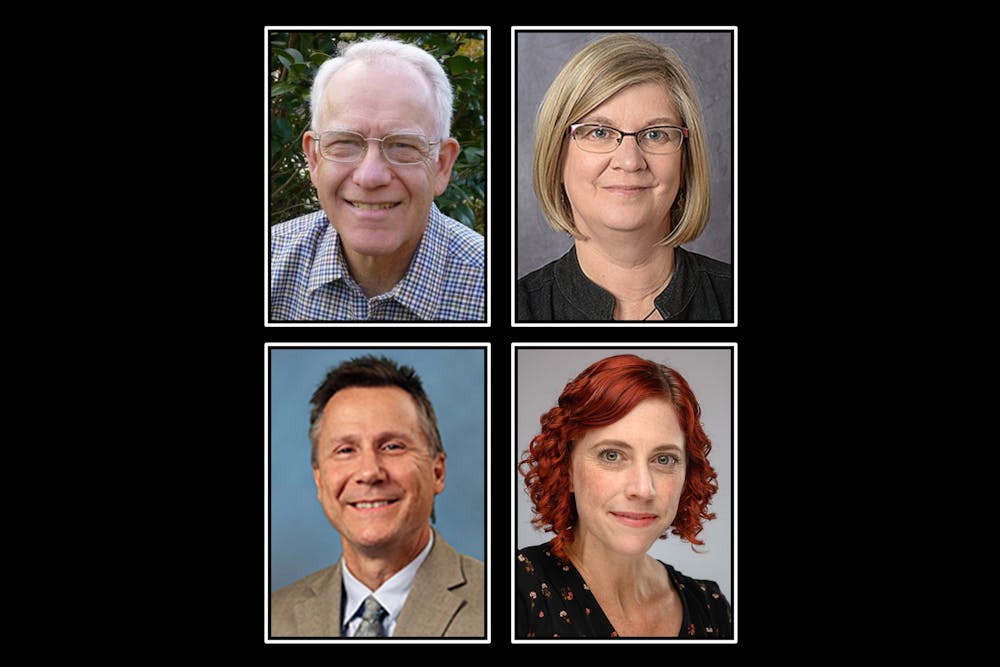Four USC faculty members were elected Fellows of the American Association for the Advancements of Science (AAAS) in November 2021. According to the AAAS website, the illustrious honor is given to people whose efforts advance science and its applications to society.
Bert Ely
Biological sciences professor Bert Ely was elected to AAAS because of his research on bacteria and his work outside of the university.
Ely is the director of the Post-baccalaureate Research Education Program (PREP). PREP is a one-year program that comes between students' undergraduate and Ph.D. programs. The students work full time in a lab, conducting research to get experience before graduate school.
"(PREP) provides a post back here for minority students who want to go out and get a Ph.D. in biology, but maybe they didn’t get the preparation they needed," Ely said. "I’ve gotten more than 80 minority students into Ph.D. programs."
Currently, Ely is researching a bacteria called Caulobacter crescentus.
“(This bacteria serves as) an excellent model system for studying how genes get turned on and off at different times,” Ely said. “And we’re ... trying to understand how genomes evolve, how many different kinds of viruses there might be that affect this one kind of bacteria.”
Ely expects to continue researching genome evolution in the future with bacteria and viruses. His research just created a new model that shows how bacteria can take DNA from their environment and incorporate it into their own DNA.
Kirsten Dow
Kirsten Dow conducts research on climate change impacts and decision-making. Her research goes beyond the environmental science of climate change with a focus on the perception of risk to those who receive climate change warnings.
Her research has contributed to the US National Climate Assessment that was published in 2018 and the International Panel on Climate Change assessment report in 2014. An example of some of her recent work is a paper she published about the problem of communicating climate risk.
“There's a need to motivate people to support policies that are adaptive and attempt to address the issue. And on the other hand, there's a concern about scaring people with some of the findings. And for some people, bad news or scary news might lead them to just disengage from the topic altogether,” Dow said.
Dow's future research will remain focused on climate response research.
Currently, she is looking at heat-health risks in the Southeast because temperatures are the most consistent signal over all models of climate change impacts.
"[Heat-health impacts] exacerbate all of the health disparities that exist in our current health care system,” Dow said.
Sharon DeWitt
A distinguished professor of anthropology, Sharon DeWitt has done extensive research on health and demography from data collected by human skeletal remains. She focuses on pandemics and variation in risk of death during that time period.
Her major findings are on the health of populations before and after the Black Death.
“I've found evidence that health was on the decline leading up to the Black Death, and then health at least temporarily improved after the Black Death ended,” DeWitt said.
DeWitt's research methods have drawn attention to her research. She is trying to extract as much information as possible about people's lives for the living population by using only their skeletons, which is an imperfect process.
“I use modeling approaches that basically allow us to fill in the gaps of what's existing in those data,” DeWitt said.
Currently, DeWitt is in the early stages of researching the progression of syphilis. Her studies are focused on skeletons and the medical records of those who experienced syphilis prior to antibiotic treatment. She is trying to understand someone’s likelihood of experiencing worse symptoms from the disease.
Alan Decho
Alan Decho, a professor and Associate Dean of Research in the Arnold School of Public Health, is studying microbiology in public health. His research specifically addresses biofilms, which are attached bacterial communities.
“The reason we study biofilms is because when bacteria are attached to a surface, they start acting very differently," Decho said. "We find that they're more resistant to antibiotics."
When these bacteria are in a biofilm, they connect and encase themselves with extracellular polymer molecules. This allows them to perform activities more efficiently than they would as free-living cells as they act in powerful coordinated groups. Significantly higher amounts of antibiotics can be needed to kill these bacteria.
In addition to research, Decho teaches a class on biofilms in the Honors College, where he incorporates his research into what he teaches.
“That's always a very exciting class to teach because these kids come in and you teach them a little bit about something and then they start asking you questions that you've never thought about," Decho said. "It's very stimulating to teach a class like that."
In his future research, Decho plans on utilizing nanotechnology to modify the delivery of antibiotics to bacteria to address the problem of antibiotic-resistant diseases.

